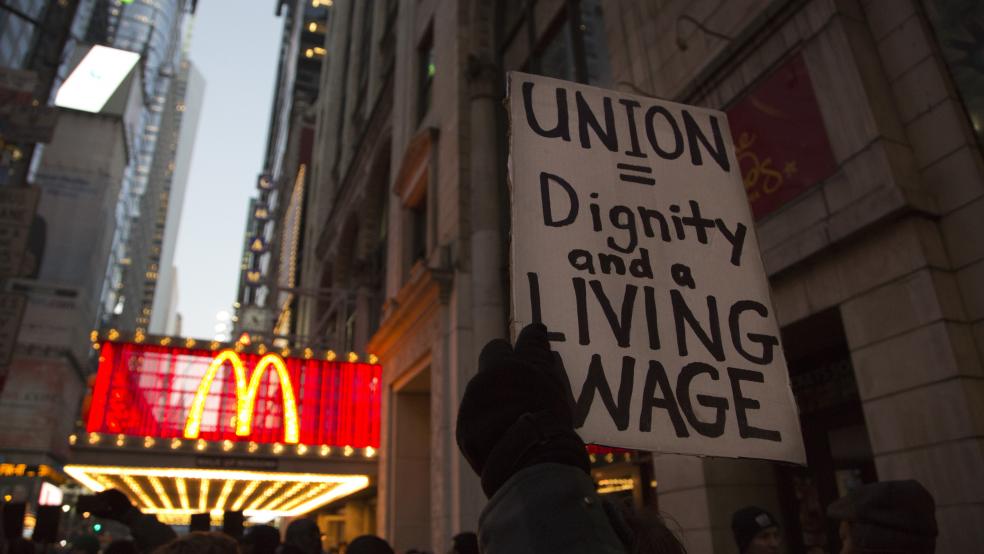For the second time in as many weeks, the Congressional Budget Office has dealt a body blow to one of the Obama administration’s top priorities, this time with a report finding that increasing the minimum wage would cost the economy half a million jobs.
President Obama used his State of the Union speech in January to champion a 39 percent minimum hourly wage increase from the current $7.25 to $10.10, and last week signed an executive order mandating that any new federal contracts specify that contractors must pay employees a minimum of $10.10 per hour.
Related: CBO Has an Unusual History of Frustrating Presidents
Opponents of the change, primarily in the Republican Party, said that they opposed raising the minimum wage because it would force companies to hire fewer workers. In a report released Tuesday, the CBO essentially said that the GOP is right. The report found that on net, raising the minimum wage to $10.10 would “would reduce total employment by about 500,000 workers, or about 0.3 percent.”
The findings in the report were, or course, far more complicated than a single number. The bipartisan CBO concluded that the move would have the average effect of raising the real income of families living below the poverty line by $5 billion annually. Families with total incomes between one and three times the poverty level would see their incomes increase by $12 billion.
In sum, the study found, “Of the 17.0 million workers directly affected by the $10.10 option, 16.5 million would end up with higher earnings during an average week in the second half of 2016, and 500,000 would end up jobless and therefore with lower earnings.”
Related: CBO Future Shock – The Economy Will Struggle for 7 Years
Aspen Gorry, an assistant Professor of Economics at the University of California, Santa Cruz, and a visiting fellow at the conservative American Enterprise Institute, said that the CBO finding on the impact on jobs wasn’t surprising.
“That doesn’t seem to be far outside the range of the longer-term estimates,” he said. “The minimum wage literature is massive and there was a consensus that the number was in the range of what’s reported.”
Jared Bernstein, a senior fellow with the Center on Budget and Policy Priorities and a former chief economist to Vice President Joe Biden, agreed that the CBO numbers were in the same range as the general economic consensus.
“The economists who have looked at this closely agree that the job loss impacts hover about zero or slightly below, meaning that wither there is no effect on employment or a small negative effect,” he said. “CBO chose a slightly higher negative effect than I think the best research would support, but they’re not off the reservation.”
However, he added, on the whole he sees the CBO report as “strongly supportive” of a minimum wage increase. “Show me a policy that lifts the wages of 98 percent of its target audience without incurring any federal budget costs,” he said. “I don’t think you’ll find one.”
Regardless of the nuances of the report, the GOP pounced on the 500,000 number as if it were proof of their claim that raising the minimum wage would be bad for workers.
The report on the minimum wage comes just days after CBO issued its annual budget outlook, which predicted that the Affordable Care Act would eventually result in the equivalent of 2.5 million full-time employees leaving the workforce due to a combination of some workers paring back their hours and others leaving the labor force entirely.
The report on the effects of Obamacare on the workforce were complicated and not entirely negative, but the headline number of 2.5 million “lost” workers got more play than the more complex explanation the CBO put forward with it.
Top Reads from The Fiscal Times:





